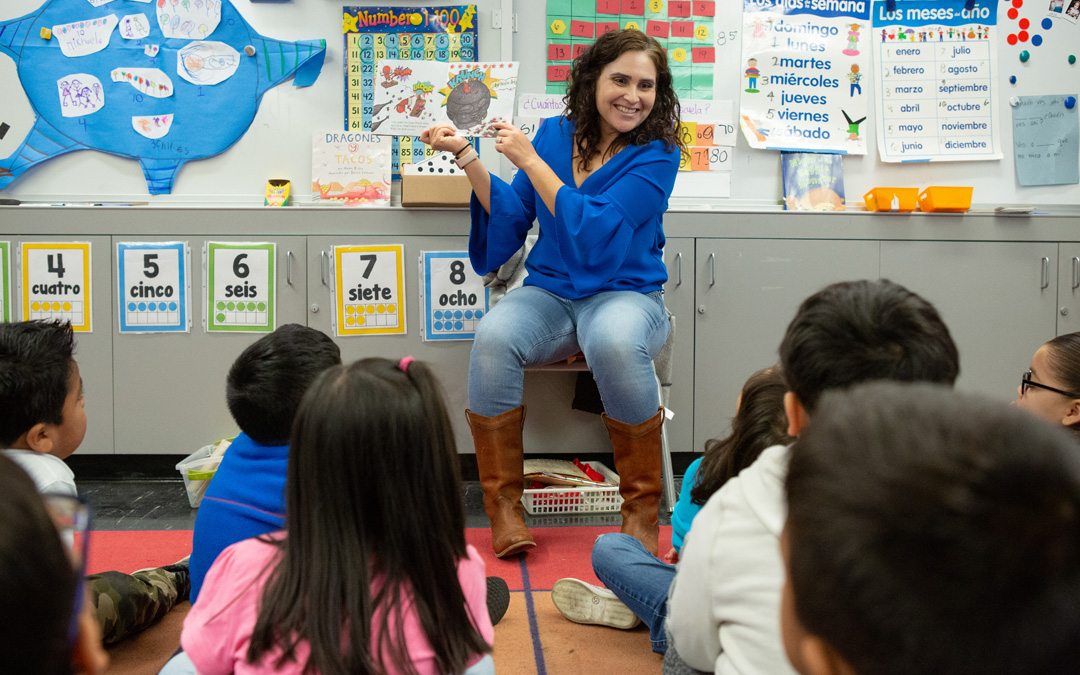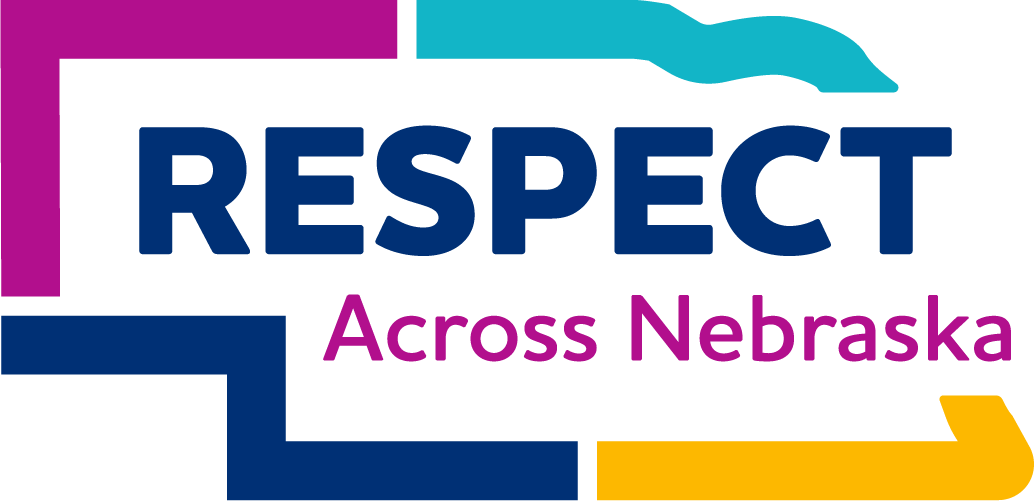
The RESPECT Across Nebraska team has developed a new competency framework for early childhood educators. The framework supports the design and implementation of equitable, accessible, community-based and culturally sustaining early childhood teacher preparation pathways in Nebraska. These pathways are intended to help students achieve their educational goals and earn professional credentials to join the state’s early childhood workforce.
The framework combines 10 existing competency frameworks into a Crosswalk Matrix, identifying key domains and synthesizing competencies for each domain. Input was gathered from advisory committees, early childhood professionals and faculty. More than 20 individuals from various institutions participated in this work, in collaboration with early childhood educators and leaders across the state.
Why a Competency-Based Framework?
Early childhood systems are complex and involve caring for children from diverse backgrounds in various settings. There is a lack of understanding of how the system works, which creates barriers to earning early childhood education degrees or certification. Multiple sets of competencies exist for students enrolled in colleges and universities, each outlining what educators should know and be able to do, yet there is no formalized way to acknowledge the competencies of seasoned professionals whose expertise was acquired outside the classroom. This gap creates confusion and unnecessary burdens, hindering the completion of teacher preparation programs. A unified competency framework will streamline certification, accreditation and credit transferability across higher education institutions.
Framework Purpose
Support Teacher Development
The framework aims to support both teachers and children in their development by aligning curricula, facilitating credit transfer and aligning competencies with certification requirements. It also aims to recognize prior experience through competency-based assessments.
Key Objectives:
- Define core professional competencies for early childhood professionals working with children from birth through grade 3.
- Implement common assessments across institutions, including practical demonstrations, examinations, portfolios or projects, to facilitate degree completion and certification.
- Establish valid, reliable and culturally informed methods for assessing competencies across all institutions in Nebraska.
- Ensure competency-based education is recognized and financially supported.
- Align competencies with teacher certification requirements.
- Align educator preparation programs with these competencies.
- Design stackable programs and credentials for different age groups (e.g., birth to age 3, ages 3-5, kindergarten through second grade).
Support Children’s Development
The framework was developed to enhance children’s development by addressing gaps in existing competency frameworks. Specifically, it identifies culturally sustaining practice, relationship-focused practice and trauma-informed practice. Although some of these elements are included in existing frameworks, the new competency framework are emphasizes their importance. For instance, trauma-informed practice is included because creating healthy social and emotional environments for young children requires a meaningful understanding of trauma, its impact on development and how trauma-informed practices benefit all students, educators and families. Additionally, systemic recognition of the value of racially, linguistically and culturally diverse populations has been largely underrepresented in many existing frameworks; therefore, a culturally sustaining lens is intentionally centered within the competencies.
RESPECT Framework Domains
- Child Development Knowledge, Content Knowledge and Developmentally Appropriate Strategies/Instructional Practices
- Partnerships with Families and Communities
- Learning Environments
- Reflective Practice
- Culturally Sustaining Practice
- Trauma-Informed Practice
- Supporting Social and Emotional Development
- Assessment, Observation and Documentation
- Professionalism
Cross-Cutting Values
Relationship-Based Practices
Children learn best when they feel safe, secure and included. Safe, stable, nurturing relationships are essential for the development of foundational skills that contribute to learning, health and resilience across the lifespan. Learning takes place in a matrix of relationships with friends, teachers, family and other significant adults. Educators promote optimal learning when they build partnerships with parents and colleagues and support children’s development of positive relationships with peers.
Culturally Sustaining Practices
Diverse cultures, languages and ways of being are critical assets that must be intentionally centered and valued. Key features of culturally sustaining practice include seeing and engaging with each person as a unique and complex individual rather than as a representative of their culture, along with valuing language, cultural practices and intersectional ways of being. This practice involves using a curriculum and learning materials that reflect a wide range of cultures, connecting with and being accountable to the community, promoting equity of access and opportunity, and being curious about power and how it is used in relationships.
Reflective Practice
Reflective practice is a metacognitive process in which educators observe children’s behavior with curiosity, interpret their observations and respond with intentionality. They examine their own thoughts, feelings and beliefs about child development and learning, and consider how these influence their behavior. Educators also observe their emotional, cognitive and physiological responses to children’s behavior and proactively self-regulate to avoid being reactive in their responses. Additionally, they critically review their practice individually or collaboratively, considering multiple perspectives to understand themselves and others. Educators who engage in reflective practice tend to use more developmentally appropriate practices, show greater sensitivity in their interactions with children and experience lower levels of work-related stress.
Application
The competencies will be used to align assessments with curricula and certification standards, design systems for awarding credit for demonstrated competencies and facilitate credit transfer across institutions.
Next Steps
- Align pilot institutions’ coursework with the RESPECT competencies.
- Evaluate and refine the RESPECT competencies as needed.
- Design/select assessments to measure RESPECT competencies.
